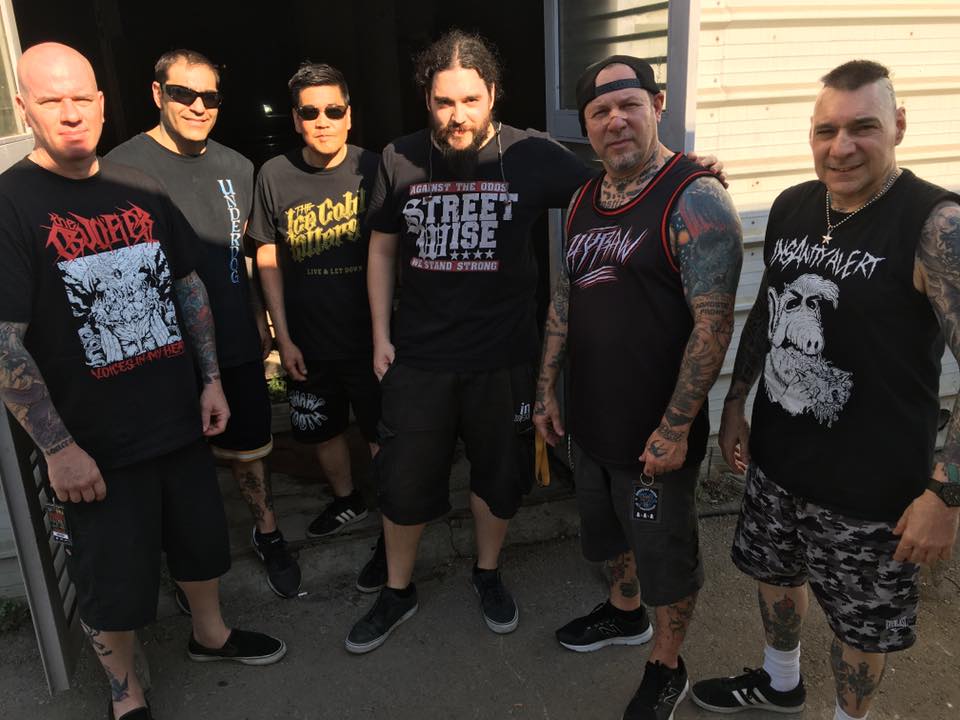The Punch-Bag of the Music World :The Promoter

In the bustling world of live music, concerts, and events, there is one key figure working tirelessly behind the scenes to ensure that everything runs smoothly: the promoter. While the spotlight often shines on the performers, the promoter's role is crucial in bringing together the elements that create a memorable show. This article delves into the hard work and responsibilities of a promoter, highlighting how they serve as the vital link between the band, the venue, and the audience.
The Role of a Promoter
At its core, a promoter is responsible for organizing and marketing live events, such as concerts, festivals, and club nights. They work closely with artists, managers, venues, and media outlets to ensure that an event attracts an audience and runs smoothly. The promoter's job is multifaceted, requiring a blend of business acumen, marketing savvy, and a deep passion for music.
The Challenges of Being a Promoter
Being a promoter is no easy task. It involves long hours, meticulous planning, and often, a significant amount of risk. Here are some of the main challenges promoters face:
- Financial Risk: Promoters usually front the money for booking venues and artists, which means they bear the financial risk if ticket sales do not cover expenses.
- Logistical Complexity: Organizing an event involves coordinating numerous details, including scheduling, transportation, accommodation, and technical requirements.
- Marketing Pressure: A promoter must create effective marketing strategies to sell tickets and ensure a good turnout. This includes using social media, traditional advertising, and engaging with fan communities.
- Unpredictable Factors: Weather, artist cancellations, and technical issues can all disrupt plans, requiring promoters to think on their feet and adapt quickly. Bonus factors if you are a Greek promoter : Football Matches, Marathons, Demonstrations, Strikes, Summertime Beach Escapes etc.
Steps to a Successful Show
Creating a successful show involves several key steps, each demanding attention to detail and strategic planning.
- Booking the Right Talent: Choosing the right artist or band is crucial. Promoters need to have a good understanding of their target audience and current music trends to book acts that will draw a crowd.
- Securing the Venue: Finding a suitable venue that matches the expected audience size and the artist’s needs is another critical step. Promoters must negotiate contracts, ensuring that both parties are clear on terms such as payment, scheduling, and technical specifications.
- Marketing the Event: Effective promotion involves creating buzz and excitement around the event. This can include using social media, email marketing, press releases, and working with local media outlets to spread the word.
- Ticket Sales: Promoters need to set ticket prices that balance affordability for fans with covering costs and making a profit. They often work with ticketing agencies to manage sales and distribution.
- Event Coordination: On the day of the event, promoters oversee the setup, ensure that all technical aspects are in place, and manage the schedule. They coordinate with the venue staff, security, and the artist’s team to ensure everything runs smoothly.
- Post-Event Activities: After the event, promoters handle the wrap-up, which includes settling payments, reviewing performance, and gathering feedback to improve future events.
The Link Between Band, Venue, and Audience
One of the most crucial aspects of a promoter’s job is acting as the bridge between the band, the venue, and the audience.
- Connecting with the Band: Promoters must understand the needs and preferences of the artists they work with. This includes everything from technical requirements to hospitality needs. Building a good relationship with artists and their management is essential for future collaborations.
- Collaborating with the Venue: A successful event relies heavily on the promoter's relationship with the venue. This includes negotiating terms, ensuring all logistical details are handled, and making sure the venue staff is prepared for the event.
- Engaging the Audience: Promoters need to know their audience and how to reach them effectively. They create marketing campaigns that resonate with fans, ensuring that the event is well-attended and that the audience has a great experience.
Responsibilities of a Promoter
The list of responsibilities a promoter holds is extensive and varied. Here are some of the key duties:
- Contract Negotiation: This includes negotiating fees with artists and venues, as well as other contract terms such as performance times, technical requirements, and cancellation policies.
- Budget Management: Promoters must manage the event budget carefully, balancing costs for artist fees, venue rental, marketing, and other expenses against expected ticket revenue.
- Marketing and Promotion: Creating and executing a marketing plan to promote the event through various channels.
- Event Coordination: Ensuring that all logistical aspects of the event are in place, including technical setup, artist hospitality, and security.
- Customer Service: Handling inquiries and issues from ticket buyers, and ensuring that attendees have a positive experience.
- Post-Event Analysis: Reviewing the event’s success, gathering feedback, and making adjustments for future events.
Conclusion
The role of a promoter is both challenging and rewarding. It requires a unique combination of skills and a passion for live music. Promoters are the unsung heroes who work tirelessly to bring together the elements that create unforgettable live events. Their work ensures that the band, the venue, and the audience all come together in perfect harmony, resulting in a successful show that leaves everyone wanting more. While the job can be demanding and fraught with challenges, the satisfaction of seeing a packed venue and a happy audience makes it all worthwhile.